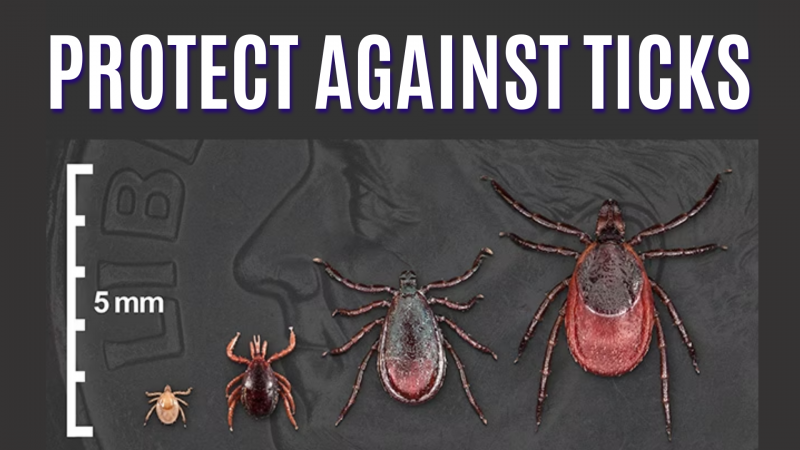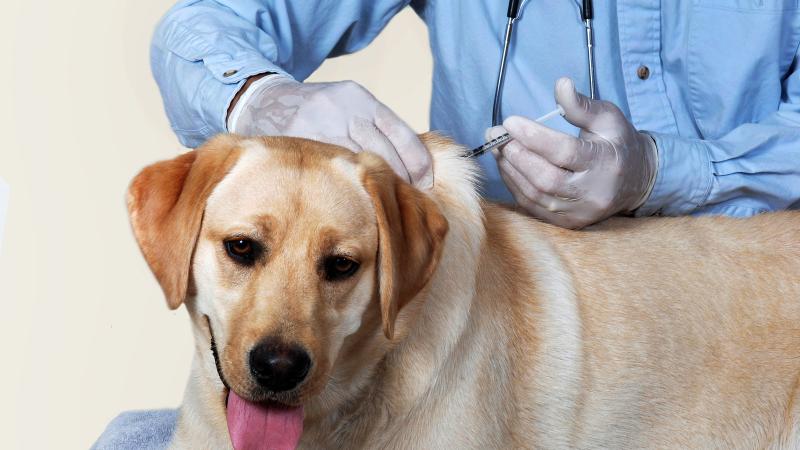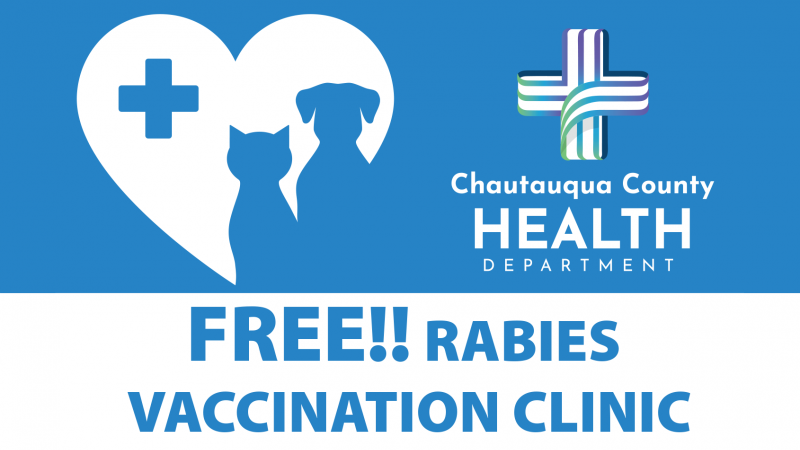Our office coordinates several FREE Rabies Immunization Clinics throughout the year.
Free rabies clinics for dogs, cats and domesticated ferrets are offered in Chautauqua County locations throughout the year. Clinics are sponsored by Chautauqua County Health Department and a run-in collaborations with our local towns and cities. Notices for these clinics will be sent to local media outlets and posted on the Chautauqua County website and social media pages. If you would like a clinic in your area we encourage you to call your town and city officials.
The Environmental Health Division is charged with the prevention of human cases of rabies in Chautauqua County. This includes promoting pet rabies vaccinations, investigating potential rabies exposures (animal bites & scratches) that are reported to the Department, and submitting certain animal specimens to the NYS Department of Health Wadsworth Laboratory for rabies testing. In accordance with NYS Public Health Law, any person with knowledge of an animal bite is required to report these to the Health Department for investigation.
What is Rabies?
Rabies is a well known lethal disease that is easily spread to humans by the bite or scratch of an infected animal. It is endemic in certain wild mammal populations across New York State including primarily raccoons, bats, fox, and skunk.
The disease is caused by a virus which is transmitted through the saliva of an infected animal. Without swift and proper treatment the disease is always fatal. Once symptoms develop there are no effective treatments, making early identification and immediate treatment absolutely necessary.
Common Symptoms
Common symptoms of rabies are listed below. It is important to note that rabid animals may not exhibit all or any of these symptoms. Symptoms may vary by species, individual, and by how advanced the infection is.
- Changes in Behavior/Temperament– Infected animals may become unusually aggressive, irritable, or tame and may lose their sense of fear from humans/natural enemies. This is often the first symptom to appear. Beware of normally nocturnal animals which are out during the day.
- Neurological Problems– As the diseases destroys the nervous tissue, the animal may develop a wide range of neurological symptoms. This may include staggering, convulsions, seizure-like symptoms, and even paralysis. It is also possible that the animal may make unusual sounds, not characteristic of their species.
- Difficulty Breathing/Swallowing– In the later stages of the disease, the animal exhibit difficulty swallowing, choking, and the well known "frothing of the mouth".
Rabies Vaccinations for Pets
In general, pets are far more likely to come in contact with rabid animals than people. Fortunately, an up-to-date rabies vaccination should protect your pets if they are exposed to rabies. Dogs, cats and ferrets may all receive vaccinations after 12 weeks of age. Booster frequency depends on the species and the type of vaccine given. Farm animals may also be vaccinated against rabies. Contact your veterinarian for more information.
Rabies vaccination is required in NYS in order to license your dog. In addition, it is a violation of the Sanitary Code of the Chautauqua County Health District to harbor or possess a dog, cat or ferret without a current vaccination. It is your legal responsibility to ensure that all of your dogs, cats, or ferrets are vaccinated.
Reporting an Animal Bite
Animal bites are managed in Chautauqua County by following the protocol for reporting, advising, investigating, and consulting medical professionals. All animal bites are required by law to be reported to the Chautauqua County Department of Health as soon as possible. Any exposure involving wild animals or animals suspected of having rabies requires immediate reporting and follow up.
The information provided is to help inform veterinarians, medical personnel, and the public about the risks of rabies infections and the proper action that must be taken if a possible rabies exposure has occurred.
Visit the NYSDOH Rabies website to learn more about the rabies virus and the precautions you can take to protect yourself and your pets.
Chautauqua County Contacts
- Environmental Health Office - 716-753-4481
- After Normal Work Hours (Sheriff Dispatch) - 716-753-4232
- NYS Department of Environmental Conservation Officers - 716-851-7050
- Nuisance Wildlife Control Persons
- NYSDEC Wildlife Rehabilitators
Important Rabies Information
- Facts About Rabies
- MMWR (2007) Compendium of Animal Rabies Prevention and Control
- What to Do if Bitten
- When to Vaccinate Your Pet
Resources for Medical Professionals
- Bat Rabies Transmission
- Rabies Exposure Guidelines
- Rabies Exposure Investigation Form (for bites, scratches, etc.)
- Rabies Treatment Flowchart














